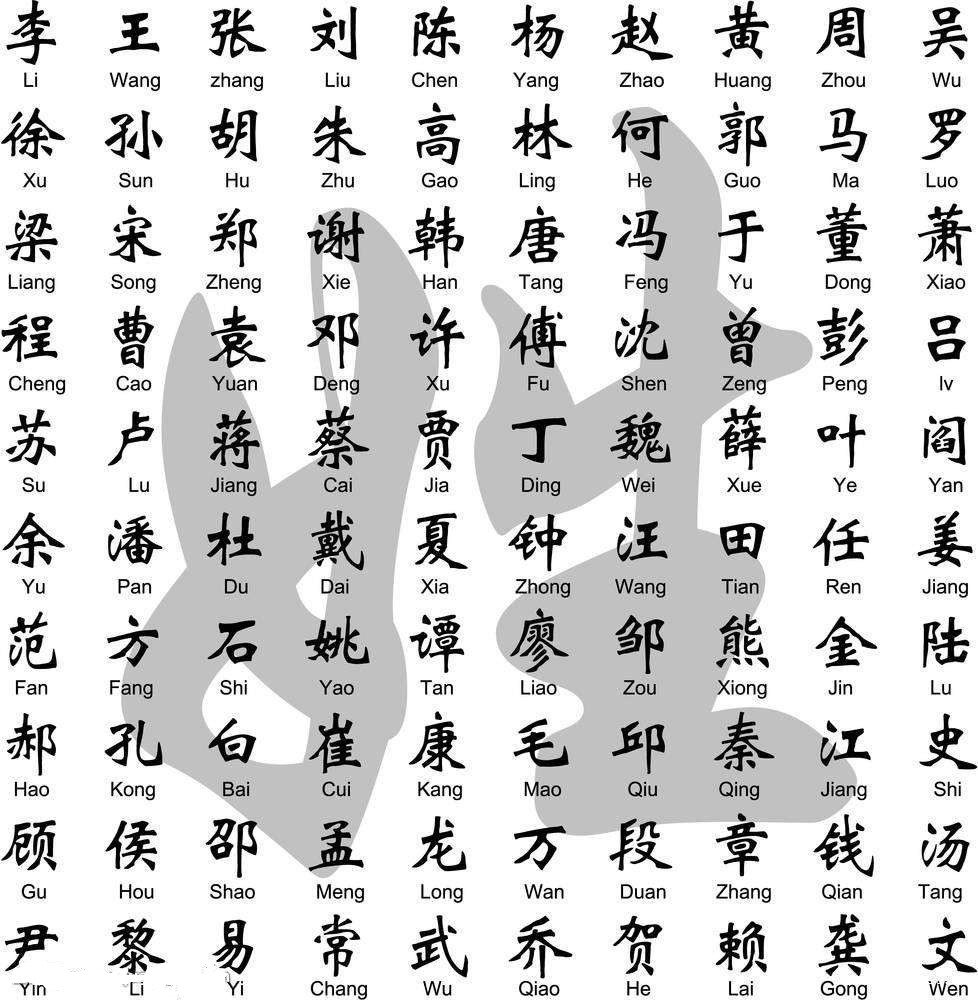
Chinese People's Name
Usually, the names of Chinese people have their own tradition and characteristics.Chinese names consist of a surname known as xing (姓, xìng), which comes first and is usually but not always monosyllabic, followed by a personal name called ming (名, míng), which is nearly always mono- or disyllabic. Unlike westerners, the family name in China is put first, followed by the given name. Interestingly a fame covert does not use her husband's family name.
Given Name of Chinese people
The given name usually contains one or two Chinese characters but in order to avoid confusion, newly-born babies are now entitled to be given names of three characters. Chinese names are meant to convey special meaning, with the given names often expressing the best of wishes on the new-born. Some imply the birthplace, birth time or natural phenomenon, like Jing (Beijing), Chen (morning), Dong (winter) and Xue (snow); Some embody the hope of virtue, like Zhong (faithful), Yi (righteous), Li (courteous) and Xin (reliable) while others express the wishes of life, like Jian (health), Shou (longevity), and Fu (happiness).
Family Name
 Altogether some 22,000 family names have been used in China but over time, some of them have become reserved and only 3,500 are commonly used nowadays. The most popular three are Li, Wang and Zhang, respectively occupying about 7.9%, 7.4% and 7.1% of the whole Chinese population. There are 270 million Chinese people who own one of these top three surnames.
Altogether some 22,000 family names have been used in China but over time, some of them have become reserved and only 3,500 are commonly used nowadays. The most popular three are Li, Wang and Zhang, respectively occupying about 7.9%, 7.4% and 7.1% of the whole Chinese population. There are 270 million Chinese people who own one of these top three surnames.Among all the family names, 100 common ones cover almost 87% of the total population. Of these, 19 are more popular than others, including Li, Wang, Zhang, Liu, Chen, Yang, Zhao, Huang, Zhou, Wu, Xu, Sun, Hu, Zhu, Gao, Lin, He, Guo and Ma, and represent about half of the whole Chinese people.
Some Chinese have compound surnames, consisting of two characters, like Ou Yang, Tai Shi, Duan Mu, Shang Guan, Si Ma, Dong Fang, Du Gu, Nan Gong, among others. Now there are altogether 81 compound surnames existing in the country.
All Chinese people have equal rights to use their own names, which are legally protected. Generally speaking, a child is always entitled to the surname of his father. However, children nowadays in China do not have to do so; they can adopt that of their mother. Nicknames are often called in their childhood or by their confidants.
Addressing Chinese People
It is considered to be polite and respectful to address a Chinese people by his/her surname, followed by honorific titles like Xiàn Shèng (Sir), Nû Shï (Madam) or the job position. Given names are often called between good friends. Xiâo Jiê nowadays is considered to be an offensive way to address young ladies. Below is the general way to address various Chinese people.







 Ask Questions ?
Ask Questions ?